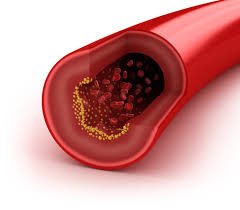NILEMDO® Delivers Significant Cholesterol Lowering in Addition to Statin Therapy Which is Maintained During 2.5 Years of Treatment

- NILEMDO® (bempedoic acid) is a new, first-in-class, oral, low-density lipoprotein cholesterol (LDL-C) lowering treatment that significantly reduces LDL-C on top of statins and other lipid-lowering therapies1
- Bempedoic acid acts on the well-known cholesterol synthesis pathway, upstream of the statin target in the liver1
- Due to its unique mechanism of action, bempedoic acid is not activated in skeletal muscle which decreases the potential for muscle-related side effects1,2
- The 78-week open-label extension of the 52-week CLEAR Harmony trial was presented at the ESC Congress 2020 showing that bempedoic acid is well tolerated and significantly reduces LDL-C over a period of 2.5 years
MUNICH, Germany: Daiichi Sankyo Europe GmbH (hereafter, ‘Daiichi Sankyo’) has announced that NILEMDO® (bempedoic acid) has demonstrated consistent tolerability and sustained efficacy over 2.5 years, in results presented at the ESC Congress 2020, the annual meeting of the European Society of Cardiology. Bempedoic acid is approved in Europe to reduce low-density lipoprotein cholesterol (LDL-C) in adults with primary hypercholesterolaemia or mixed dyslipidaemia.1 Up to 80% of patients do not reach guideline-recommended LDL-C goals despite receiving treatments such as statins and other lipid-lowering therapies (LLTs), and are at increased risk of a heart attack or stroke.3,4,5
The data presented at ESC Congress 2020 comes from an open-label extension of the CLEAR Harmony trial, which originally showed that bempedoic acid is generally well tolerated and significantly reduces LDL-C compared to placebo at 12 weeks, on top of statins and other oral LLTs. This was maintained over the 52 weeks of the trial.6 People who completed CLEAR Harmony had the option to be enrolled into the open-label extension in which all participants received bempedoic acid for an additional 78 weeks, meaning some patients received treatment for 130 weeks in total. Findings from the extension study showed that bempedoic acid significantly lowered LDL-C by 14.4% on top of maximally tolerated statin therapy and other LLTs throughout 78 weeks of treatment, which are consistent with results seen in the original study.7
“Many people have a long-term need for treatments that are well tolerated and will help them keep their LDL-C levels low in order to reduce their risk of cardiovascular events, such as a heart attack or stroke. Therefore, it is important to know how people respond to treatment over longer-term time periods,” said Professor Kausik Ray, Professor of Public Health, Director of the Imperial Centre for CVD Prevention, Deputy Director of Imperial Clinical Trials Unit and Head of Commercial Trials Imperial College London and Consultant Cardiologist. “This study can give our colleagues confidence that the LDL-C reductions we see with bempedoic acid are maintained over time, without a significant increase of overall adverse events on top of statins and other LLTs.”
“Patients enrolled in CLEAR Harmony required additional LDL-C lowering, despite receiving maximum tolerated statin therapy and other oral LLTs. This is a group of people who are at high cardiovascular risk and have a significant need for combination therapies that can reduce cholesterol further,” said Dr. Michael Kerschnitzki, Medical Affairs Director, Antithrombotic & Cardiovascular at Daiichi Sankyo Europe. “Bempedoic acid and the bempedoic acid / ezetimibe fixed-dose combination tablet act in a complementary manner to existing LLTs and could become important additional treatments for patients to reach their LDL-C goals.”
This year’s ESC Congress 2020 is a virtual experience being held online due to travel restrictions.















































